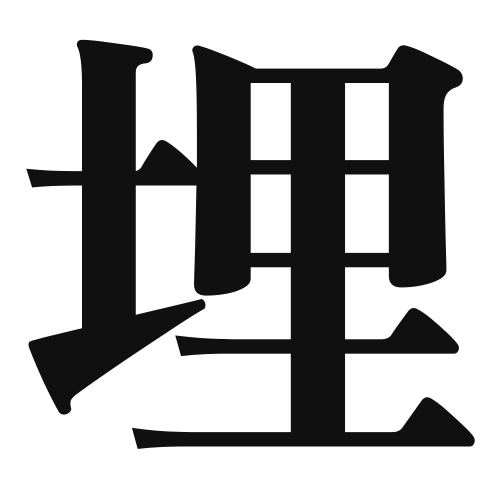1. Overview of Meaning
The kanji “埋” (umai) means “to bury” or “to cover up.” It conveys the idea of placing something underground or hiding it from view.
2. Formation and Radical
Formation of the Kanji: The kanji “埋” is a compound character that combines the radical for “earth” (土) with the phonetic component “毎” (mai), which contributes to its pronunciation.
Radical: The radical of “埋” is 土 (tsuchi), which means “earth” or “ground.” This radical is commonly found in kanji related to land or soil.
3. Examples of Usage
Common Words and Phrases:
- 埋葬 (まいそう, maisou) – burial
- 埋める (うめる, umeru) – to bury
Example Sentences in Daily Conversation:
- 彼は犬を庭に埋めました。 (かれはいぬをにわにうめました。) – He buried the dog in the garden.
- 古い宝物が埋まっているかもしれません。 (ふるいほうもつがうまっているかもしれません。) – There might be old treasures buried here.
4. Synonyms and Antonyms
Similar Kanji:
- 隠す (かくす, kakusu) – to hide; while “埋” implies burying something, “隠す” focuses on concealing it without necessarily placing it underground.
Opposite Kanji:
- 出す (だす, dasu) – to take out; this is the opposite of “埋,” as it means to remove something from a hidden or buried state.
5. Cultural and Historical Background
Relation to Japanese Culture: The act of burying has significant cultural implications in Japan, especially in relation to funerary practices and the respect for ancestors.
Proverbs and Idioms:
- 埋もれ木 (うもれぎ, umoregi) – a hidden talent; this phrase reflects the idea that something valuable may be buried and not immediately visible.
